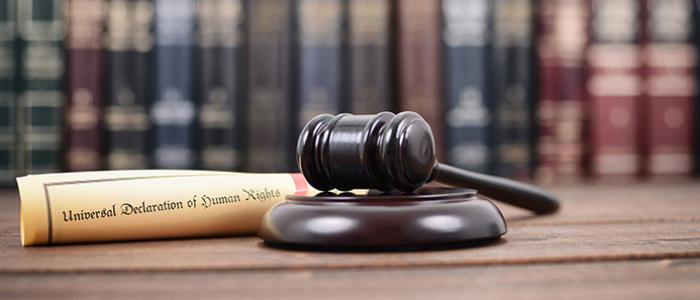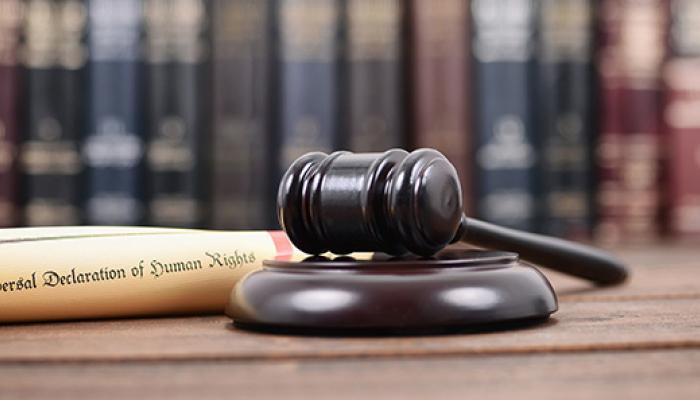
6.13 Що таке основні права людини? Чи повинна кожна людина мати право сповідувати будь-яку релігію? У якій мірі я повинен адаптуватися до меншин?
Хоча Ісус хоче, щоб ми жили повноцінним життям і робили це в повній свободі (Лк 4,18), абсолютної свободи не існує. Також інші люди мають права, і іноді ці права суперечливі. Тоді важливо знати, що існують певні фундаментальні права. Сюди входять право на життя, роботу, свободу від рабства, свободу переконань … і релігії!
Тільки в справжній свободі ви можете відповісти на Божу любов своєю любов’ю. Нікого не можна примусити вірити у щось, ані когось не можна змусити любити. Я можу сподіватися і бажати, щоб ви побачили, як віра в Ісуса може змінити ваше життя на краще, але ви повинні бути вільними у виборі чогось іншого. Незалежно від їхньої релігії чи переконань, меншини мають такі ж основні права, як і всі. Але того, хто зловживає своєю свободою, потрібно зупинити.
What is the relationship of the Catholic Church with the Jewish people?
The Catholic Church recognizes a particular link with the Jewish people in the fact that God chose them before all others to receive his Word. To the Jewish people belong “the sonship, the glory, the covenants, the giving of the law, the worship, the promises, and the patriarchs; and of their race, according to the flesh, is the Christ” (Romans 9:4, 5). The Jewish faith, unlike other non-Christian religions, is already a response to the revelation of God in the Old Covenant [CCCC 169].
What is the bond that exists between the Catholic Church and non-Christian religions?
There is a bond between all peoples which comes especially from the common origin and end of the entire human race. The Catholic Church recognizes that whatever is good or true in other religions comes from God and is a reflection of his truth. As such it can prepare for the acceptance of the Gospel and act as a stimulus toward the unity of humanity in the Church of Christ [CCCC 170].
What is the meaning of the affirmation “Outside the Church there is no salvation”?
This means that all salvation comes from Christ, the Head, through the Church which is his body. Hence they cannot be saved who, knowing the Church as founded by Christ and necessary for salvation, would refuse to enter her or remain in her. At the same time, thanks to Christ and to his Church, those who through no fault of their own do not know the Gospel of Christ and his Church but sincerely seek God and, moved by grace, try to do his will as it is known through the dictates of conscience can attain eternal salvation [CCCC 171].
Загальна декларація прав людини… стала результатом зближення різних релігійних і культурних традицій, усі вони мотивовані спільним бажанням поставити людину в центрі інституцій, законів і діяльності суспільства, а також вважати людську особистість як таку, що необхідна для світу культури, релігії та науки… Вони ґрунтуються на природному законі, вписаному в людські серця і присутньому у різних культурах та цивілізаціях… Не можна дозволити, щоб ця велика різноманітність точок зору приховала той факт, що не лише права універсальні, але такою ж є і людська особа, суб’єкт цих прав [Папа Бенедикт XVI, «До Генеральної Асамблеї ООН», 18 квітня 2018 р.].





